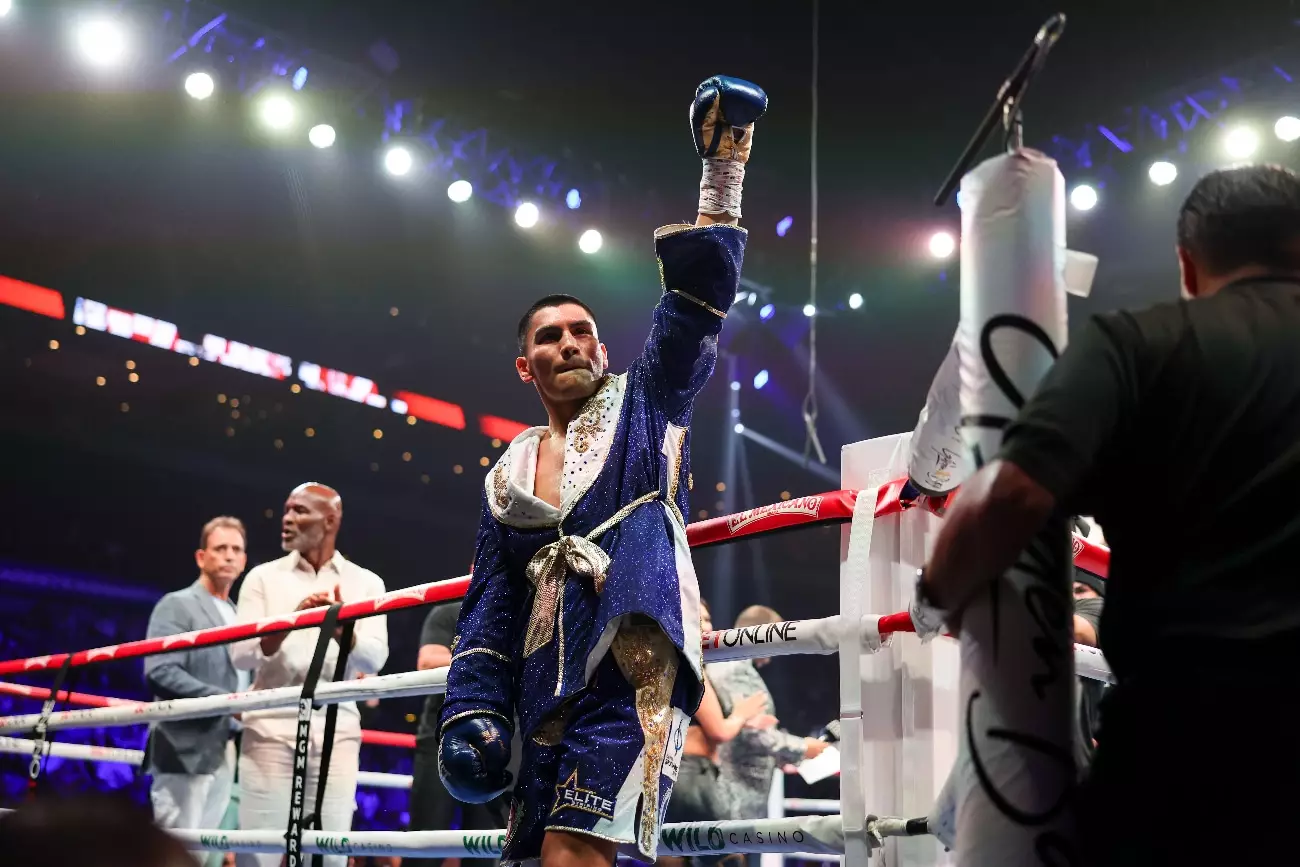The boxing world has been buzzing with excitement over the potential showdown between WBC interim junior middleweight champion Vergil Ortiz Jr. and rising star Jaron “Boots” Ennis. Fans eagerly anticipated their clash scheduled for February 22nd in Riyadh, Saudi Arabia, which was touted as a highlight of the mega-card events for Riyadh Season. However, the excitement has quickly turned to disappointment as negotiations collapsed, leaving fans and organizers in the lurch. The inability to finalize this fight speaks volumes about the current dynamics in boxing, where the business often overshadows the sport itself.
While the specifics surrounding the failed negotiations are somewhat murky, it seems the sticking point revolved around weight. Ennis reportedly pushed for the fight to take place at 147 pounds, the welterweight limit. This was a significant hurdle, as Ortiz, with an impressive record of 22 wins and 21 knockouts, would not have been able to make that weight comfortably. Many speculate that Ennis’s insistence on this limit was a strategic play, aiming to exploit what could have been Ortiz’s weakened condition had he been forced to drain down to welterweight.
The implications of Ennis’s decision are multifaceted. On one hand, opting to maintain the comfortable weight class limits might indicate a cautious approach to an arduous bout with Ortiz, a fighter known for his knockout power and relentless style. On the other, some critics have argued that by sidestepping this challenge, Ennis may be diluting his own legacy in the sport. Boxing is replete with fighters who have transcended expectations by taking risks. Ennis’s choice indicates a preference for strategic career management over a fierce competition.
Moreover, the involvement of promoters, particularly Eddie Hearn in this case, adds another layer to the complexities of this situation. Hearn has stated that they are focusing on unification fights at welterweight rather than moving up to challenge Ortiz for his title at 154 pounds. Such decision-making is indicative of the broader market trends in boxing, where fighters and their teams prioritize financial feasibility and career longevity. While this might seem practical, it inevitably impacts the sport’s allure, as fans yearn to see elite fighters face off regardless of risk.
Adding to the drama, Ortiz’s team is now scrambling to secure a new opponent for the February 22nd card, as Sebastian Fundora has already ducked the offer, citing prior commitments. This leaves Ortiz in a precarious position, as the original buzz around his fight has fizzled, and organizers now must fill the void left by the failed Ennis match-up. Failure to do so could dampen what was intended to be a spectacular showcase.
The fallout from the Ortiz-Ennis negotiations serves as a reminder of the need for better alignment between promoters, fighters, and the boxing community as a whole. The fans are the lifeblood of any sport, and their desires for thrilling matches should not take a backseat to negotiating table politics. There should be an imperative for fighters to embrace fierce competition if boxing is to maintain its status as a premier sport.
In a landscape where pomp and circumstance often outweigh the essence of competition, it’s crucial for fighters like Ennis and Ortiz to rise above the noise and deliver the bouts that fans truly want to see. Orchestrating these high-stakes matches can only bolster their legacies and the sport they represent, proving that real champions are not just made in negotiations but in the ring.

